Health Hygiene

In what ways does poor personal hygiene impact mental health ?
Poor personal hygiene can negatively affect mental health by causing decreased self-esteem, social isolation, and exacerbating symptoms of mental health disorders. It is important to maintain good hygiene habits for overall well-being.
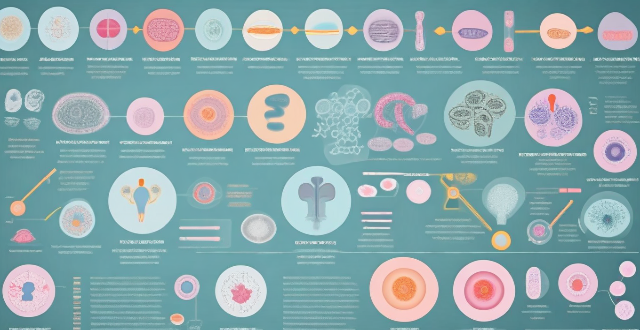
What are the risks associated with poor personal hygiene on health ?
This article discusses the risks associated with poor personal hygiene on health. It highlights various infections and illnesses that can occur due to poor hygiene practices, including skin infections, respiratory infections, gastrointestinal infections, urinary tract infections, sexually transmitted infections, and mental health issues. The article emphasizes the importance of maintaining good personal hygiene habits to prevent these health risks and promote overall well-being.
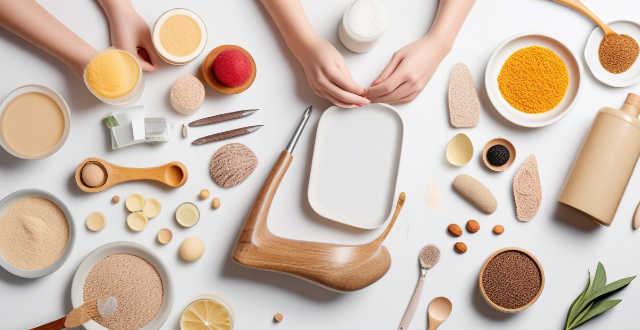
How does one's personal hygiene affect their social interactions ?
Personal hygiene is crucial for positive social interactions, boosting confidence, and maintaining good health. Good hygiene habits include regular bathing, teeth brushing, wearing clean clothes, hand washing, and taking care of skin and hair. Poor hygiene can lead to social isolation, misunderstandings, and health risks. Following simple tips can ensure that personal hygiene positively impacts social interactions.

Can poor personal hygiene lead to skin problems ?
Poor personal hygiene can lead to a variety of skin problems, including bacterial and fungal infections, irritation and inflammation, and other conditions. To prevent these issues, it's important to practice good hygiene, such as regular showering, wearing clean clothes, hand washing, moisturizing, and sun protection.

How can I teach my children about the importance of personal hygiene ?
Teaching personal hygiene to children is crucial for their development. Start with basic concepts and gradually introduce more complex ones as they grow. Emphasize hand washing, covering mouth while coughing, daily bathing, and teeth brushing. Lead by example, make hygiene fun, educate consistently, and use visual aids. Handle resistance with negotiation, incentives, and explaining consequences. Maintaining hygiene habits requires ongoing education on puberty, menstrual hygiene, etc.

What is the importance of dental hygiene in pets and how can it be maintained ?
The Importance of Dental Hygiene in Pets Dental hygiene is a crucial aspect of your pet's overall health and well-being. Poor dental hygiene can lead to various health issues, including bad breath, gum disease, tooth loss, and even more severe problems like heart, liver, or kidney disease. Therefore, maintaining good dental hygiene for your pets is essential. Maintaining dental hygiene in pets involves several steps that should be incorporated into their daily routine. These steps include regular brushing, dental chews and toys, regular checkups with a veterinarian, specialized dental foods, and homemade remedies. Incorporating these steps into your pet's daily routine can help keep their teeth healthy and prevent potential health issues down the line.

What role does nutrition play in maintaining personal hygiene ?
The article emphasizes the importance of nutrition in maintaining personal hygiene. It suggests consuming nutrient-rich foods, developing healthy dietary habits, and supporting the immune system through nutrition to improve overall health and hygiene.

Why is personal hygiene important for those who handle or prepare food ?
Personal hygiene is critical for food handlers due to its impact on health, safety, and quality assurance. Cross-contamination and allergen transfer can lead to illnesses, while cleanliness affects food presentation and flavor. Handwashing, proper grooming, and workstation cleaning are essential practices to maintain hygiene.

What is the significance of personal hygiene in food handling ?
Personal hygiene is crucial for food safety, public health protection, and maintaining quality in the food industry. It prevents cross-contamination, reduces disease transmission, and enhances food quality. Adherence to personal hygiene standards impacts regulatory compliance, consumer trust, and economic implications within the food industry.

What is the importance of dental hygiene in overall health ?
The Importance of Dental Hygiene in Overall Health Dental hygiene is an essential aspect of maintaining good overall health. Poor dental hygiene can lead to a range of health problems, including gum disease, tooth decay, and bad breath. In this article, we will explore the importance of dental hygiene in overall health and provide tips for maintaining good oral health. How Dental Hygiene Affects Overall Health Gum Disease: Gum disease, also known as periodontal disease, is caused by the buildup of plaque on the teeth and gums. If left untreated, it can lead to inflammation, infection, and even tooth loss. Gum disease has been linked to several systemic health problems, including heart disease, diabetes, and respiratory disease. Tooth Decay: Tooth decay occurs when bacteria in the mouth produce acids that eat away at the enamel on the teeth. This can lead to cavities, pain, and even tooth loss if left untreated. Tooth decay can also affect overall health by causing digestive problems and nutritional deficiencies. Bad Breath: Bad breath, also known as halitosis, is often caused by poor dental hygiene. It can be embarrassing and may even affect social interactions. In some cases, chronic bad breath can be a sign of underlying health problems, such as gum disease or respiratory infections. Tips for Maintaining Good Oral Health Brush Your Teeth Twice a Day: Brushing your teeth twice a day with fluoride toothpaste helps remove plaque and bacteria from your teeth and gums. Floss Daily: Flossing daily helps remove plaque and bacteria from between your teeth where your toothbrush cannot reach. Visit Your Dentist Regularly: Regular dental checkups and cleanings can help identify and treat potential problems early on before they become more serious. Eat a Healthy Diet: Eating a healthy diet low in sugar and high in nutrients can help keep your teeth and gums healthy. Drink Water: Drinking water throughout the day helps rinse away food particles and bacteria in your mouth. Avoid Tobacco Products: Smoking or using other tobacco products can increase your risk of developing gum disease and other oral health problems. Limit Alcohol Consumption: Drinking too much alcohol can dry out your mouth and increase your risk of developing gum disease and other oral health problems.

What is the significance of regular bathing in personal hygiene ?
Bathing regularly is essential for maintaining good personal hygiene, offering benefits such as dirt and sweat removal, prevention of body odor, promotion of blood circulation, stress and anxiety reduction, and maintenance of good grooming habits.

Is there a difference between personal hygiene and cleanliness ?
Personal Hygiene and Cleanliness are often used interchangeably, but they have distinct meanings. Personal hygiene focuses on the individual's physical well-being, while cleanliness focuses on the environment's tidiness and orderliness. Both are essential for maintaining good health and preventing the spread of infections.

Is it safe to use scented feminine hygiene products ?
This article discusses the potential risks and benefits associated with using scented feminine hygiene products. Possible risks include allergic reactions, hormonal imbalances, and environmental impact, while benefits include personal comfort, confidence, variety, and enjoyment. It is important for individuals to consider their own needs and preferences when choosing whether or not to use scented feminine hygiene products and to consult with a healthcare professional regarding any concerns or questions about specific products.

Can using certain feminine hygiene products cause infections or irritation ?
"Can Using Certain Feminine Hygiene Products Cause Infections or Irritation?": This article explores the potential risks associated with using various feminine hygiene products, including infections and irritation. It provides tips on how to prevent these risks by choosing appropriate products, practicing good hygiene, and consulting a healthcare provider if necessary. The article emphasizes the importance of using these products correctly and mindfully to maintain personal hygiene without compromising one's health.
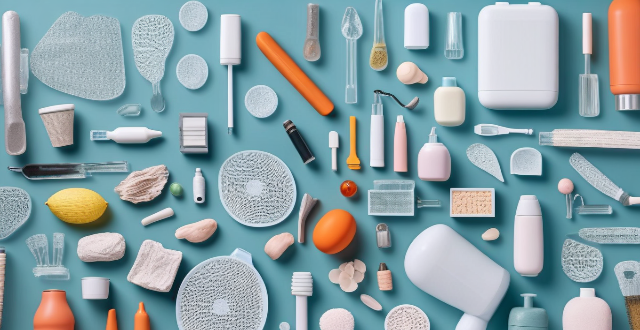
Are there any specific products or tools recommended for optimal oral hygiene ?
Optimal oral hygiene is crucial for overall health. Recommended products and tools include electric or manual toothbrushes, fluoride or whitening toothpaste, dental floss, interdental cleaners, antibacterial or fluoride mouthwash, tongue scrapers, and water flossers. Tips for optimal oral hygiene include regular brushing and flossing, regular dental check-ups, a healthy diet, quitting smoking, and drinking water after meals.

What steps should be taken to maintain good hygiene during travel ?
The text provides a comprehensive guide on maintaining good hygiene during travel. It emphasizes the importance of packing essential hygiene items, keeping hands clean, practicing safe eating habits, staying clean and fresh, being mindful of surroundings, keeping living spaces clean, and following local customs. The article underscores that maintaining good hygiene is crucial to staying healthy and enjoying a pleasant travel experience.
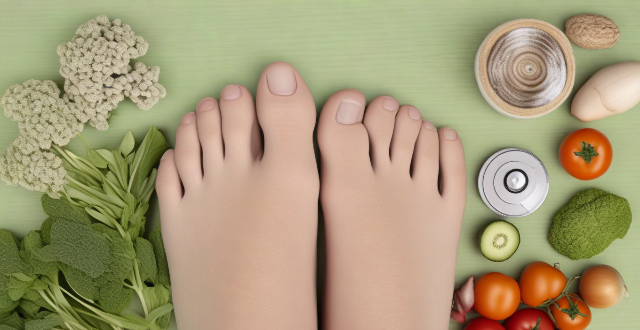
What are the consequences of neglecting foot hygiene ?
The text discusses the various consequences of neglecting foot hygiene, including physical health risks such as athlete's foot, toenail fungus, ingrown toenails, blisters and calluses, plantar warts, smelly feet (bromodosis), corns, bunions, gout, cellulitis, diabetic foot ulcers, deep vein thrombosis (DVT), and peripheral neuropathy. It also addresses mental health impacts like embarrassment and self-consciousness, anxiety, and stress. The text provides detailed descriptions and prevention tips for each issue, emphasizing the importance of good foot care habits to maintain overall foot health.

How often should I wash my hands to maintain good hygiene ?
Washing hands is an essential part of maintaining good hygiene. It helps prevent the spread of germs and diseases, especially during these times of COVID-19. Here are some tips on how often you should wash your hands: before eating or preparing food, after using the bathroom, after coughing/sneezing/blowing your nose, before touching someone else's face, and after handling dirty objects. It's important to wash your hands frequently throughout the day to maintain good hygiene and prevent the spread of germs and diseases.

What are the key principles of food hygiene and safety ?
Food hygiene and safety are crucial in preventing foodborne illnesses and ensuring the well-being of consumers. Key principles include personal hygiene such as washing hands thoroughly, covering cuts and sores, avoiding contaminating surfaces, and wearing appropriate clothing; food handling including keeping food at safe temperatures, cooking food thoroughly, using separate utensils, and avoiding reusing cooking oil; sanitation such as cleaning equipment regularly, sanitizing surfaces, and controlling pests; and storage such as storing food properly, refrigerating leftovers promptly, and labeling and dating products. By following these principles, you can help protect yourself and others from foodborne illnesses and enjoy safe, healthy meals.

What are some common health tips shared by celebrities ?
Celebrities often share their health tips and tricks with the public. Here are some of the most common ones: 1. Drink plenty of water to stay hydrated throughout the day. 2. Eat a balanced diet that includes a variety of fruits, vegetables, whole grains, lean proteins, and healthy fats. 3. Get enough sleep, ideally 7-8 hours each night, to improve mood, concentration, and physical performance. 4. Practice mindfulness and meditation to reduce stress and promote mental clarity. 5. Incorporate physical activity into your daily routine through cardio exercises, strength training, or yoga. 6. Prioritize self-care practices such as taking time for hobbies, spending time with loved ones, or simply taking a relaxing bath or reading a book. 7. Avoid harmful substances such as tobacco, alcohol, and drugs to maintain good physical and mental health. 8. Maintain good hygiene habits by washing your hands regularly, brushing your teeth twice a day, and showering or bathing regularly to prevent illness and promote overall health.

What are the best practices for personal hygiene ?
Personal hygiene is essential for maintaining good health and preventing the spread of illnesses. Best practices include washing hands regularly, showering daily, brushing teeth twice a day, wearing clean clothes, trimming nails, covering mouth when coughing or sneezing, avoiding touching face, keeping living space clean, getting enough sleep, and staying hydrated.

What are the best practices for women's health maintenance ?
The text outlines best practices for women's health maintenance, emphasizing regular check-ups and screenings, healthy eating habits, physical activity, mental health care, reproductive health, preventive measures, and lifestyle choices. The article suggests annual wellness visits, pap smears and HPV tests, mammograms, breast self-exams, a balanced diet with plenty of water and limited processed foods, regular exercise including strength training and flexibility exercises, stress management, adequate sleep, social support, professional help for mental health concerns, discussion of birth control options, menstrual hygiene, pregnancy care, staying up to date on immunizations, sun protection, safe sex practices, limiting alcohol, avoiding smoking, and steering clear of illicit drugs. These recommendations are intended to help women maintain their health and wellbeing throughout their lives, with the caveat that individual circumstances and needs should guide healthcare decisions in conjunction with professional advice.

Are there any health precautions I should take before going on a cruise ?
Before embarking on a cruise, it's crucial to take necessary health precautions to ensure a safe and enjoyable experience. These include getting vaccinated, packing a travel health kit, staying hydrated, practicing good hand hygiene, being mindful of food safety, protecting oneself from the sun, and monitoring one's health during the trip. Consulting with a doctor or travel clinic can provide personalized advice tailored to individual needs and itinerary.

How can I establish a daily personal hygiene routine ?
Establishing a daily personal hygiene routine is essential for maintaining good health and well-being. The routine includes morning, midday, and evening practices such as brushing teeth, showering, washing hands, applying deodorant, eating a healthy breakfast, drinking water, taking breaks, tidying up workspace, removing makeup, changing into clean pajamas, and getting enough sleep. Following these steps can help keep you clean, healthy, and confident throughout the day.

Are there any specific feminine hygiene tips for athletes or active women ?
本文为运动员和活跃女性提供了关于女性卫生的实用建议,包括穿着适当的内衣、使用卫生用品、保持个人卫生、保持水分、穿着宽松衣物以及监测月经周期。这些建议有助于她们在运动时保持舒适和自信,同时降低与女性卫生相关的感染风险。

How can schools improve student mental health ?
Improving student mental health is crucial for academic success and overall well-being. Schools can help by creating a supportive environment, implementing mental health programs, providing access to resources, promoting healthy habits, addressing bullying and harassment, offering extracurricular activities, monitoring academic pressure, and encouraging self-care. By implementing these strategies, schools can create an environment that supports the mental health of all students, allowing them to thrive both academically and personally.
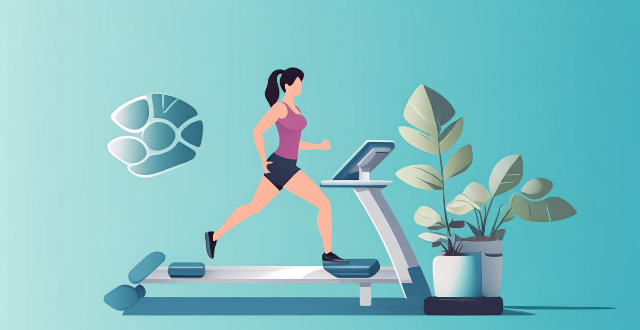
How do wearable technology devices aid in tracking and managing health through exercise ?
Wearable technology devices play a significant role in tracking and managing health through exercise. They monitor various aspects of physical activity, such as heart rate, steps taken, calories burned, and sleep patterns, providing valuable data for making informed decisions about fitness routines and overall health. Features like goal setting and progress tracking can motivate individuals to stick with their exercise routines and achieve their fitness goals more effectively.
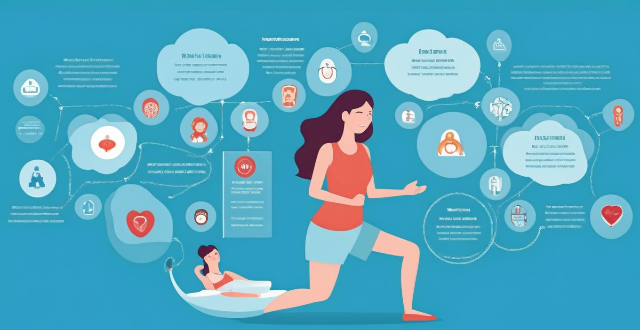
How does climate change affect women's health and reproductive rights ?
Climate change has a significant impact on women's health and reproductive rights, including increased risk of displacement, violence, and sexual assault during extreme weather events; food insecurity and malnutrition affecting reproductive health; water scarcity leading to physical injuries and reproductive health problems; air pollution causing respiratory and heart diseases as well as complications during pregnancy; and mental health issues due to stress and fear of violence. It is crucial to take action to mitigate the effects of climate change and protect the health and well-being of all people, especially those who are most vulnerable.

What precautions should women take during menstrual health care ?
Women should maintain good hygiene, use appropriate sanitWomen should maintain good hygiene, use appropriate sanithydrated, exercise regularly, use appropriate sanitary products, stay hydrated, exercise regularly, manage stress, eat a healthy diet, and seek medical help when needed during menstrual health care.